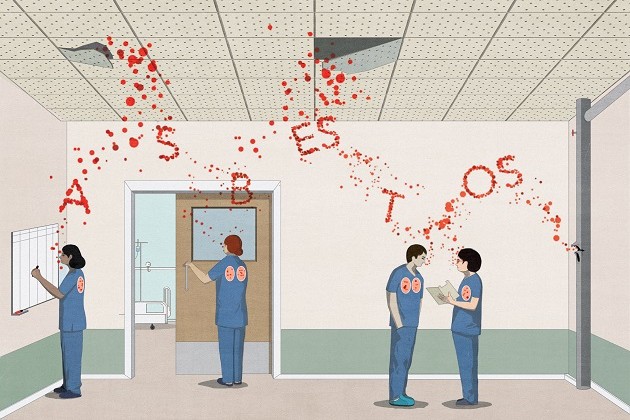When Anthony*, a community health nurse, had a brain haemorrhage at the end of 2016, his life was turned upside down. He had no choice but to take time off work to recover.
At that point, he had no idea that he would face a disability discrimination legal battle years later that would ultimately lead to the RCN fighting for him to be awarded a six-figure compensation payment.
“I worked in the NHS for nearly 25 years, and I loved my job. After my illness, I just wanted to get back to work, and I expected my employer to welcome me back, despite needing some adjustments,” he says.
A new normal
After taking time off to recover, Anthony returned to work, and thought he was managing well in the role.
“I worked with brilliant colleagues, and I’d already told them that if it became clear I couldn’t do the job, I’d be the first to let them know. As it was, it was they who first spotted errors in my paperwork,” he says.
“One of the coordinators asked me what the outcome of an assessment was. My response was: ‘what assessment’?
“Thankfully, we were all close. I’m so glad they spoke to me about it. No one was hurt but the problems with my memory couldn’t be ignored.”
Anthony sought advice from his GP who investigated his memory loss and found himself having no choice but to take time off again.
He now knew his working life would be different but his determination to return to work remained steadfast. With support from his local RCN representative, Anthony completed an Access to Work assessment and returned to work soon after. It was agreed that several reasonable adjustments were required to ensure Anthony and his patients were kept safe.
“I returned to my nursing duties but wasn’t office-based. Instead, I was initially placed in one of our hubs,” he reflects. “I had developed coping strategies. My anxiety levels at that time were manageable and easing.”
“However, I was then returned to working in the community and it took months for the agreed adjustments to arrive, such as laptop memory aids, including recorders you speak into which then print what you say.
This equipment was meant to support me in my role
“The onus was put on me to chase provision of the equipment, and after big delays, I then didn’t get any training on how to use it. I used to be the IT link nurse, but this was beyond me. This equipment was meant to support me in my role, and ultimately ensure safe and effective care for patients,” he says.
“Every time I asked for assistance, I was told there were no staff to help and was often left alone when I should’ve been supported by another registered nurse. I was left in dangerous situations, with multiple patients to care for.”
Anthony found he couldn’t cope at work after he was placed in the named nurse/co-ordinator role even though it had been agreed as part of his return to work and reasonable adjustments that these duties would no longer form part of his role. This caused Anthony to have a crisis at work from which he never recovered.
Reasonable adjustments
Employers have a duty to make reasonable adjustments to make sure workers with disabilities are not substantially disadvantaged.
When considering whether or not an adjustment is reasonable, employment law will look at the following:
- how effective the adjustment would be in improving the situation
- how practical it is to make the adjustment
- how much it would cost to make the adjustment
- how long it would take to make the adjustment
- how much disruption making the adjustment would cause.
If an employer is reluctant or refuses to consider involving Access to Work, a government scheme to assist employees with disabilities to stay in work, or implement their recommendations, this could serve as evidence of failure to implement reasonable adjustments.
Just months after returning to work for a second time, Anthony was signed off again. He couldn’t fulfil his role because his NHS employer did not make the reasonable adjustments he required by supplying the necessary equipment to counter his memory issues. They also failed to abide by the reasonable adjustments they promised to make in relation to ensuring that Anthony was not expected to carry out the named nurse/co-ordinator role.
“I developed social anxiety and social phobia. I found it extremely difficult to leave the house, to socialise or be in public spaces. I was completely overwhelmed and lost confidence. I couldn't do my job,” he says.
Legal support
Anthony had initially sought advice from an RCN rep who had assisted him with the Access to Work report. When the requirements for reasonable adjustments were ignored, his case was passed to the RCN’s legal team, which represented Anthony in the lead-up to and at the employment tribunal that followed.
There it was concluded that his employer’s failures led to his eventual and non-recoverable absence from work.
“The employer failed to make reasonable adjustments in accordance with their statutory obligations under the Equality Act 2010, which caused the member to suffer an injury, forcing him to retire through ill health earlier than he otherwise would have done,” RCN Senior Legal Officer Ferguson Doyle said.
“Anthony had been put in a position where not only had he been forced into deciding to retire, but he was also continuing to suffer with his health because of his treatment at work. It had an impact on his life, and we had strong grounds to pursue his case for disability discrimination against the trust.”
It wasn’t a simple case. The RCN investigated whether Anthony suffered an injury distinct from his brain haemorrhage because the trust failed to make reasonable adjustments.
This case demonstrates the value of being a member of the RCN
“We had to call upon an expert opinion from a neuropsychiatrist who concluded that the member had suffered an injury that was distinct from his underlying health issues, which had ultimately caused him to retire early and become almost housebound.
“This case demonstrates the value of being a member of the RCN as it shows the lengths we’re willing to go to, to support members in the most difficult of legal cases,” Ferguson adds.
Now, Anthony is encouraging other members in similar situations to seek advice.
“The trust management ruined the last years of the career I loved due to their failure in implementing several of their own policies. I hope lessons will be learnt so that staff are treated more fairly in the future,” he says.
I hope lessons will be learnt so that staff are treated more fairly in the future
The trust was ordered to pay just over £200,000 which accounts for injury to feelings, personal injury, past loss of earnings, potential loss of earnings, pension payments, the cost of previous care he has received as a result and the potential costs of his ongoing care.
He adds: “The support I received – initially from my RCN rep Margaret and the RCN legal team – was truly outstanding. I hope this outcome gives others the awareness and confidence to challenge any employer that fails to adhere to their workplace policies and seek help and advice from their professional bodies or union representatives.”
If you think you are being treated unfairly or are not being provided with appropriate reasonable adjustments, contact the RCN for advice.
Further information
Find out more about disability discrimination.








